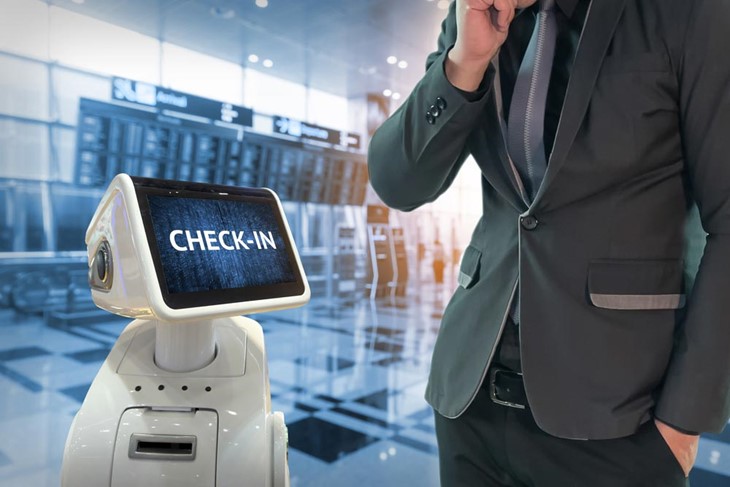- Get a quote
- Jobs
-
Employers
- Employers
-
Hire Staff
-
Our Sectors
-
Testimonials
-
About
- About
-
Our Team
-
Our Company
- Contact
- Blog
- EN | PL
Will aviation and airports soar to new heights with robots?

Posted by
HR GO Recruitment
on
Artificial intelligence (AI) is transforming multiple industries, and one of those is the aviation industry. Experts predict that advances in machine learning and other AI technologies will have a huge impact on aviation in many ways, from passenger experience to flight operations and maintenance management.
There’s no doubt that robot technology presents many new and exciting opportunities. But many are concerned about how it’ll also affect the skills and job markets of tomorrow, with a bold prediction from the World Economic Forum that it could replace 52% of roles by 2025.
While the aviation sector - and the public - may not quite be ready for planes that are fully autonomous (despite computer systems that are sophisticated enough to fly planes being well underway), emerging technologies are set to affect personnel needs in the aviation sector, up in the sky as well as on the ground. Let’s take a look at a few of the developments in the pipeline - either being used now or over the next few decades.
Faster check-in
The drive towards self-service is nothing new. But the fact that demand for global air travel continues to grow, with increasing numbers of passengers needing to be processed quicker and more efficiently than ever, makes it essential in the aviation sector.
Some airlines are starting to use facial-recognition technology that matches customer faces to their passport photos at terminal kiosks to make the check-in and baggage check process faster. Estimates from Delta Airlines are that passengers can reach their departure dates nearly 10 minutes earlier this way.
Better customer service
From lost luggage to missed connections or delayed flights, air travel brings with it situations that frustrate even the most tolerant passenger. While human customer service reps no doubt do their best to help, sheer passenger demand often means that they can’t deal with everything at once.
This is an area AI is impacting. A US study in 2017 found that 52% of airlines were planning to add some form of AI system into their customer service operations over the next five years - easing the pressure on human customer service reps and freeing them up to do other tasks.
One example is United Airlines, which now offers Amazon’s virtual assistant Alexa as a way to answer some of the most frequently asked questions, like the status of a certain flight or Wi-Fi availability, in customers’ homes before they set out on journeys.
More efficient aircraft maintenance
More complex data crunching and advanced maintenance control and planning systems lead to more efficient and effective preventative maintenance programmes which in turn leads to less delays caused by maintenance.
Technology is taking off
From customer service to airport operations and flight management, AI and machine learning are certainly making an impact in multiple areas of aviation. In our work at HR GO helping aviation and aerospace clients find talent to fill their vacancies, we anticipate further developments in the types of roles available in the industry such as data analysts becoming more prevalent in airports and airlines and tech services departments growing.
Emerging technologies not only have the potential to make the passenger experience more enjoyable, but they’ll also bring new efficiencies to the air transport industry - therefore freeing up ‘human staff’ to focus on other tasks and responsibilities that call for skills only humans have.
As machines are yet to develop fully convincing interpersonal skills, a future in which flights and aviation happen without any human intervention is still some way in the distance. Humans still play a vital role - for now!
Categories
Featured insights
3 Dos and Don’ts for personal statements
Is your CV’s personal statement working hard enough for you?
Read more